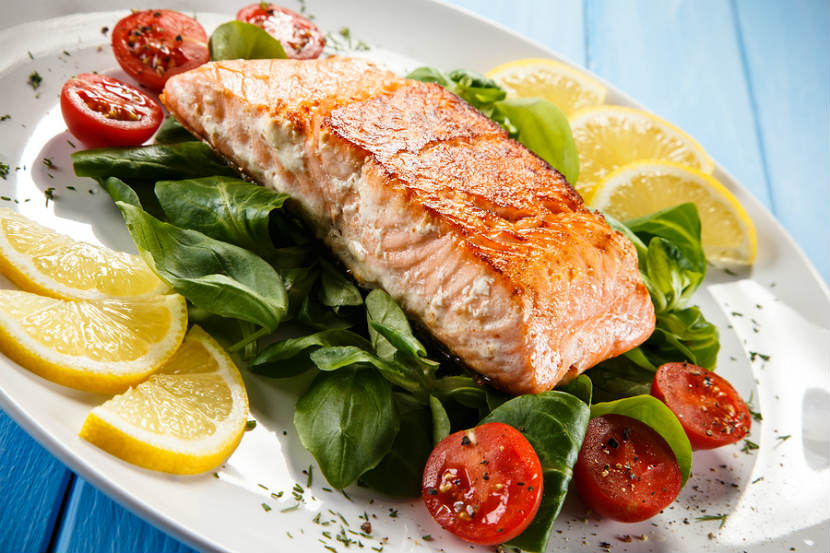
Did you know? The benefits of eating fish greatly outweigh the risks. Canada’s Food Guide recommends eating a variety of protein foods, like fish. Fish is a good source of healthy omega-3 fats.
What types of fish should I eat?
Choose fish and seafood higher in omega -3 fatty acids and low in mercury more often, such as:
Other safe, low mercury fish include:
-
Cod
-
Haddock
-
Halibut
-
Sole
-
Scallops and squid
-
Snapper
-
Perch
-
Bass
-
Tilapia
There is no limit to the amount of these low mercury fish and seafood you can eat per week.
What about tuna?
Choose “light” tuna. Look for skipjack or tongol on the label. It has less mercury than “white” (albacore) and tuna and is generally less expensive.
Canned albacore tuna should be limited by women or are or may become pregnant, women who are breastfeeding, and young children. Follow these guidelines:
-
Women who are pregnant or may become pregnant: should eat no more than 300 grams per week of canned albacore tuna.
-
Children 1 to 4 years old: should eat no more than 75 grams per week of canned albacore tuna.
-
Children 5 to 11 years old: should eat no more than 150 grams per week of canned albacore tuna.
Limit these fish
Large fish tend to accumulate more mercury over time. Because mercury affects the developing brain, it’s especially important for women that may become pregnant, are pregnant or nursing, as well as young children to limit their exposure to mercury.
Limit fresh/frozen:
-
Tuna
-
Shark
-
Swordfish
-
Marlin
-
Orange roughy
-
Escolar
If you like these fish, eat no more than the amounts shown here and choose other types of fish the rest of the week.
-
General Population: Should eat no more than 150 grams per week of these fish combined.
-
Women who are or may become pregnant or are breastfeeding: Should eat no more than 150 grams per month of these fish combined.
-
Children 5-11 years old: should eat no more than 125 grams per month of these fish combined.
-
Children 1-4 years old: Should eat no more than 75 grams per month of these fish combined.
What about sport fish?
The levels of mercury in freshwater fish can vary. Find out about any fish advisories from provincial and territorial authorities before eating it. Check with your local public health authority for safety information on eating sport fish.
Should I eat fish if I am pregnant?
Fish and seafood is a good source of omega-3 fatty acids which are important for normal fetal brain and eye development. Choose fish and seafood that are low in mercury, like salmon, cod, trout, and the other listed above. Read more about the benefits and sources of omega-3 fats here.
Recipes to try:
Broiled Rainbow Trout
Sesame Ginger Veggie Quinoa with Salmon
Corn, Sweet Potato and Salmon Chowder
One Pan Lemon Pepper Fish and Veggies
Tandoori Haddock
How can a dietitian help?
Dietitians can support you throughout many phases of your life from pregnancy to eating well when you are older. Counselling sessions with a dietitian can also help you to prevent and treat health conditions like diabetes and heart disease. Your dietitian will work with you to give you personalized advice, like how much omega-3 to eat, that meets your lifestyle and goals. Connect with a dietitian today!
Bottom line
There are many safe, low mercury fish and seafood to choose from. Fish, especially fatty fish, is a good source of healthy omega-3 fats. Some fish higher in mercury should be limited, especially by women who are pregnant or may become pregnant, and young children.
You may also be interested in:
Omega -3 fats deliver Oh Mega benefits
Introduction to Protein and High Protein Foods
Should I Take a Fish Oil Supplement?
This article was written and reviewed by dietitians from Dietitians of Canada. The advice in this article is intended as general information and should not replace advice given by your dietitian or healthcare provider.
Last Update – January 14, 2023